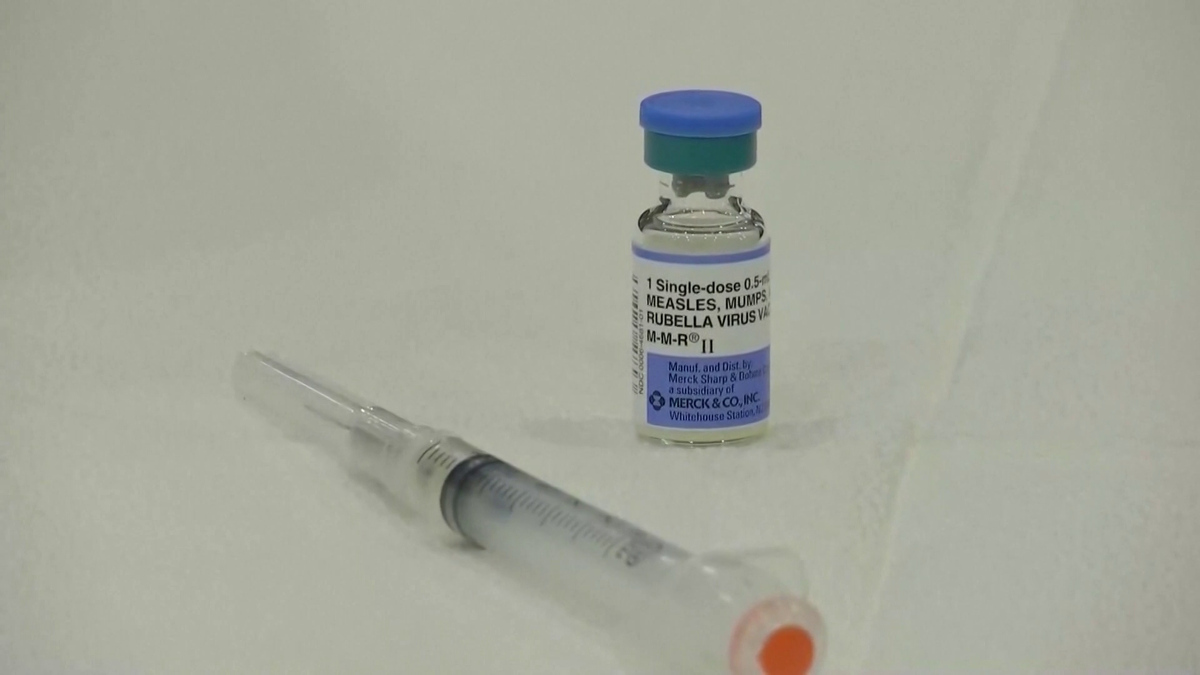Officials warn of potential exposure to measles in Massachusetts, New Hampshire
An international visitor traveled from Boston to Amsterdam while infected with measles, the Massachusetts Department of Public Health warned.On June 22, the traveler was present in public locations that could have resulted in exposure to the virus, DPH said.According to DPH, exposures may have occurred at the following locations and times:11:40 a.m. Dartmouth Coach bus line departure from Hanover, NH. Dartmouth College to Boston, MA, arriving at Logan Airport (Boston, MA) at approximately 2:40 p.m.2:40 p.m. to 8:40 p.m. Terminal E at Logan Airport, Boston, MA. Flight KLM6016 from Boston to Amsterdam departing from Gate E5. The traveler also visited Hanover, New Hampshire from June 20-22. New Hampshire state officials said there are no confirmed cases in the state, but those present in certain parts of the city should still take caution. According to Public Health Commissioner Robbie Goldstein, measles is a highly contagious airborne disease. The virus lives in the nose and throat and is sprayed in the air, where it can stay for up to two hours, when an infected person sneezes, coughs or talks.Early measles symptoms appear between 10 to 14 days after exposure and may resemble a cold. A rash occurs on the skin, first on the head, before moving downward, within a few days of symptoms developing. People with measles are contagious for approximately four days before and after the rash appears, according to DPH. “People who are not vaccinated are at greater risk of infection,” said Goldstein. “The best way for people to protect themselves from this disease is to make sure they are vaccinated.”The Centers for Disease Control and Prevention’s recommendations for Measles-Mumps-Rubella vaccines are:Children should receive their first dose of MMR vaccine at 12-15 months. School-aged children need two doses of MMR vaccine.Adults should have at least one dose of MMR vaccine. Certain groups at high risk need two doses of MMR, such as international travelers, health care workers, and college students. Adults born in the US before 1957 are considered immune to measles from past exposures.Those who were exposed and developed symptoms are encouraged by DPH to call their health care provider before visiting any health care facility, as doing so may expose others. More information about measles can be found on DPH’s website.
An international visitor traveled from Boston to Amsterdam while infected with measles, the Massachusetts Department of Public Health warned.
On June 22, the traveler was present in public locations that could have resulted in exposure to the virus, DPH said.
According to DPH, exposures may have occurred at the following locations and times:
- 11:40 a.m. Dartmouth Coach bus line departure from Hanover, NH. Dartmouth College to Boston, MA, arriving at Logan Airport (Boston, MA) at approximately 2:40 p.m.
- 2:40 p.m. to 8:40 p.m. Terminal E at Logan Airport, Boston, MA. Flight KLM6016 from Boston to Amsterdam departing from Gate E5.
The traveler also visited Hanover, New Hampshire from June 20-22. New Hampshire state officials said there are no confirmed cases in the state, but those present in certain parts of the city should still take caution.
According to Public Health Commissioner Robbie Goldstein, measles is a highly contagious airborne disease. The virus lives in the nose and throat and is sprayed in the air, where it can stay for up to two hours, when an infected person sneezes, coughs or talks.
Early measles symptoms appear between 10 to 14 days after exposure and may resemble a cold. A rash occurs on the skin, first on the head, before moving downward, within a few days of symptoms developing. People with measles are contagious for approximately four days before and after the rash appears, according to DPH.
“People who are not vaccinated are at greater risk of infection,” said Goldstein. “The best way for people to protect themselves from this disease is to make sure they are vaccinated.”
The Centers for Disease Control and Prevention’s recommendations for Measles-Mumps-Rubella vaccines are:
- Children should receive their first dose of MMR vaccine at 12-15 months. School-aged children need two doses of MMR vaccine.
- Adults should have at least one dose of MMR vaccine. Certain groups at high risk need two doses of MMR, such as international travelers, health care workers, and college students. Adults born in the US before 1957 are considered immune to measles from past exposures.
Those who were exposed and developed symptoms are encouraged by DPH to call their health care provider before visiting any health care facility, as doing so may expose others.
More information about measles can be found on DPH’s website.
#Potential #exposure #measles #Mass #N.H #officials,
#Potential #exposure #measles #Mass #N.H #officials

